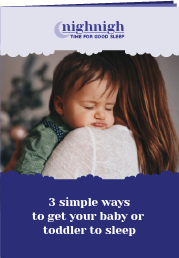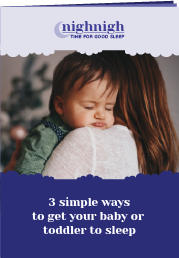The right amount of quality sleep helps children function better during the day resulting in less tiredness, better mood, and improved behaviour.
Parents of children with neurodevelopmental issues report routines are more manageable when their child gets sufficient sleep leading to enhanced family dynamics and less stress. Weighted blankets can be an effective tool to help with settling and sleep quality but the evidence is mainly anecdotal and lacks robust research. A weighted blanket may improve sleep onset and sleep quality by helping children feel less anxious in the daytime when they feel emotionally overwhelmed. A calmer daytime can lead to reduced bedtime anxiety.
How does a weighted blanket help with insomnia, anxiety, and depression?
From a scientific perspective, researchers conclude that children with ASD and ADHD can benefit as parents report less anxiety and improved sleep. Anxiety and depression can result from poor quality or insufficient sleep and are commonly associated with insomnia. The weight of the blanket gives passive deep tissue therapy by consistent sensory pressure to reduce physiological arousal and stress. Often recommended by occupational therapists as an easy tool to aid well-being, it is worth considering for children with sleep and sensory issues.
Is there anything else a weighted blanket is helpful for?
A weighted blanket can be used at any time of the day. Aiding relaxation and reducing anxiety, children may be able to regulate unwanted behaviours and emotions. Other benefits may include calming restless legs and calming the mind.
How do you choose the right weighted blanket for your child? Can they be shared among the family?
- Manufacturers recommend that 10% of your child’s body weight is the correct ratio when choosing a weighted blanket.
- Children should never sleep in a weighted blanket that is too large or heavy for their size.
- Adult-size weighted blankets should not be used on children.
- Make sure you read manufacturer recommendations and labeling on the product.
Who shouldn’t use a weighted blanket?
Weighted blankets should not be used for children under the age of two. Sometimes referred to as weighted sacks, Red Nose, the safe sleep authority advises babies and children have died from these products. Children should never be swaddled or wrapped in a weighted blanket as chest compression, asphyxia, and overheating can be potentially fatal. Children and adults with sleep apnoea and chronic respiratory and circulatory conditions should not use weighted blankets.
Will a weighted blanket affect sleep quality?
Core body temperature is one of the regulators of a good night’s sleep. As evening approaches, your body begins to cool down, setting the stage for quality sleep. Weighted blankets may lead to overheating when minute rises in core temperature signal to the brain that it isn’t sleep time. Typically, a lack of cooling off within the body can cause difficulty falling asleep, restless sleep, waking overnight, or waking too early.
Despite a lack of clinical evidence, weighted blankets may help in certain situations to improve anxiety and hence sleep.
Parents should always use one according to the weight ratio and recommended age guide. Deb says it is advisable to check the product meets safety regulations. Before you decide to buy a weighted blanket, weigh up the pros and cons. If you can borrow one and try it out, even better.
Deb Herdman, sleep practitioner and founder at Nigh Nigh is trained in CBTi and talks about weighted blankets…
Sweet Dreams,
Deb Herdman






